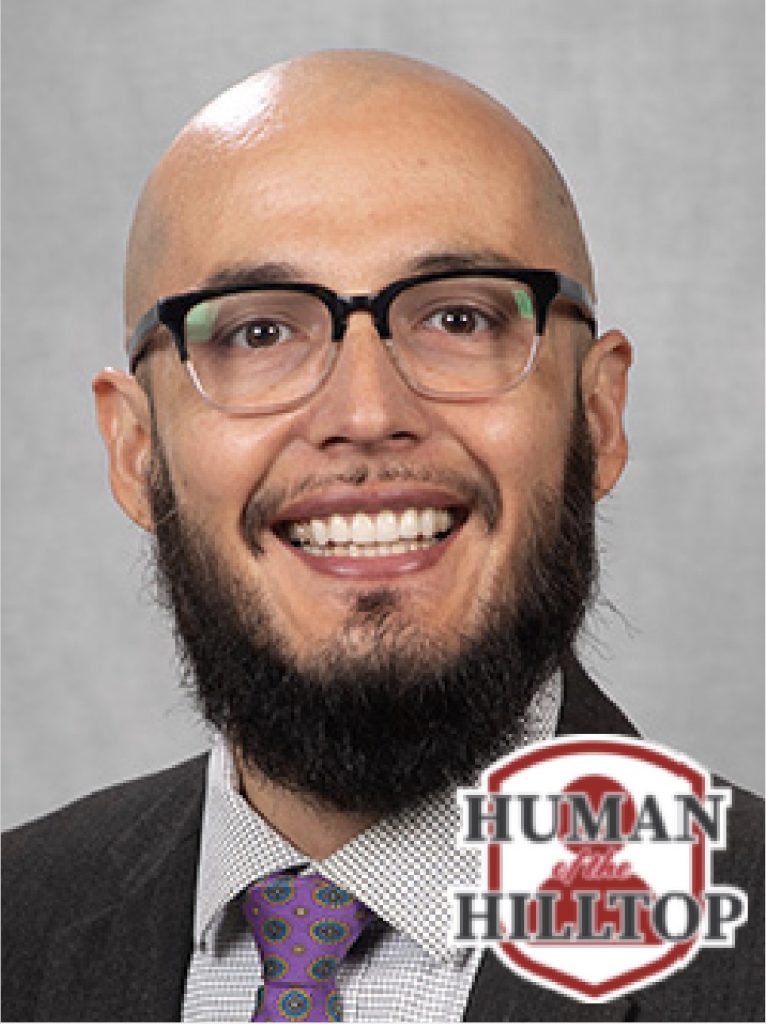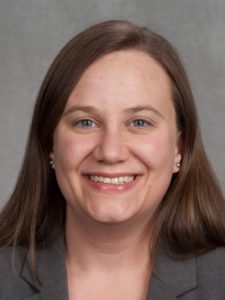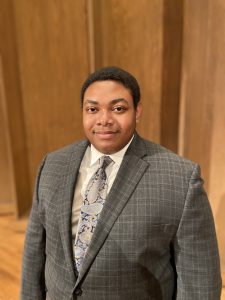
While it seems bare at the moment, there are pops of personality in the office of Alexander Lalama, the newest assistant professor in the English department on campus.
A poster of the “Punks in Peoria” festival is adjacent to a tapestry resembling South American artwork. His desk has a few reads stacked up, a pencil jar with a small pride flag sticking out and a pothos-esque plant that’s slowly spreading out of its pot.
The novels that line his shelves are bright and colorful, some with covers facing outwards rather than the usual spines. One book is even open to a two-page spread of the Mexican folk saint of death “Santa Muerte,” or Saint Death, which is a subject of his current research.
“I actually wasn’t even planning on getting a Ph. D., it wasn’t something on my radar,” Lalama said. “Being first-[generation], I still…didn’t understand how everything works. I figured out bachelor’s, I figured out master’s, then Ph. D. [I thought] ‘sounds difficult, but attainable.’ I didn’t realize how difficult it would be.”
Lalama received his bachelor’s degree in psychology at the University of Southern California, the area where he originates. He got his master’s and — after some encouragement from his professors — his doctorate’s degree at Claremont Graduate University.
He was originally pursuing pre-medicine until switching studies. Lalama joked that being a doctor or lawyer were two of the “good jobs” that his immigrant parents would approve of, but he liked reading and stories more than medicine and patient charts.
Between his bachelor’s and master’s degrees, while working at a bookstore and a banking job, is when Lalama decided he wanted to teach literature at least at the community college level. His interests, specifically, were in Latinx experiences, but he was looking for other niches in that topic alone.
“I always felt out of place,” Lalama said.
Compared to his traditional Catholic family, Lalama was interested in a more alternative subculture. He said his youth was filled with goth, punk and metal music, even wearing all black at one point.
“I knew other Latinx folks who were the same, but when I read Latinx literature, I never saw those types of experiences represented,” Lalama said. “That’s what drove my research. I know they’re out there.”
The narratives of “nerds, goths, geeks and freaks” in Latinx spaces is what draws Lalama, one material he even wants to assign for a course is a book about a Cuban family facing conflict in Cuba. The main character ended up being a punk rocker, which fascinated Lalama and how such characters challenge Latinx stereotypes.
Lalama had interviewed and toured at Bradley after hearing from a colleague at the University of Rhode Island that Bradley was making changes toward diversity on campus and looking to hire more Latinx professors. However, this was weeks before the pandemic shut everything down.
Afterwards, assistant professor Danielle Glassmeyer, of the same department, said there was some anxiety and depressed attitudes amongst other professors due to the temporary program cuts. Employing Lalama at the time was out of the question.
“We had all this excitement and hopes for this new energy that would come to our program,” Glassmeyer said.
She said that in the last five years, the department has been looking for professors of minority backgrounds and cultures to reflect the growing number of students of similar backgrounds enrolling in universities. Not having Lalama right away seemed to be a huge loss in Glassmeyer’s opinion.
Once there was more leeway for hiring in the department, Glassmeyer said that Lalama was invited back to Bradley. Despite the original position being planned for a fall 2020 start, Lalama still remained interested.
“I always like the idea of building something new,” Lalama said. “I like the idea of helping start something that’s important.”
While touring Bradley, Lalama said he met with professors and other students that were passionate about their studies and research and interested in Latinx-related topics and courses.
He even shared the possibility that a Latinx studies minor could be in the future of being on campus.
“I think the very first impact that it will show to other institutions [is] that Bradley actually cares about diversity [and] cares about Latinx students, faculty and staff population,” Lalama said. “When you have ‘Latinx’ in a title of a course, students feel [like] ‘I’m seen’ and ‘My identity is valued,’ which goes a long way for people.”
The creation of Latinx courses usually attracts both Latinx and some non-Latinx students. Having courses on topics that can relate to a student’s background is more meaningful than what might look like “easy credits.”
“[There are] all kinds of studies that suggest that students who enter college … when they see a professor who matches their experience or experiences of their family, it matters [to them],” Glassmeyer said. “It sends positive signals of the pathways to success.”
While he’s not the first Latinx professor, Lalama knows that he can be part of the change on campus. He’s looking forward to being a part of Bradley that makes progress in inclusivity and draws future students to campus knowing that they can see their experiences being seen, heard and valued.
“That’s my hope of what’s going to happen,” Lalama said.









